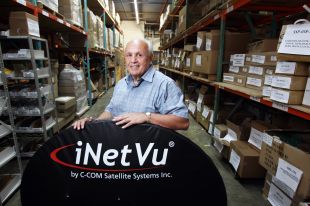There are many unusual aspects of local tech firm C-COM Satellite Systems Inc.
(Original article: http://www.obj.ca/Technology/2013-07-08/article-3299218/Breaking-the-rules%3A-C-COM-finds-success-by-ignoring-standard-business-practices/1?newsletterid=3&date=2013-07-08-09)

The publicly traded company recorded its eighth straight annual profit last year, carries no long-term debt and holds enough money in the bank to deliver dividends to shareholders. C-COM’s stock value is up 74 per cent since the beginning of March.
CEO Leslie Klein has run the company since its inception in 1997, overseeing international expansion and large contract wins – all while maintaining a small staff of about 32 employees.
“We are one of the few companies that has such a large international presence as a small business,” Mr. Klein said.
He did so by breaking some commonly held beliefs about how to achieve success in the business world.
“I’m a believer that you should not really experiment with a formula that works for you,” he said.
Here are some of the business rules Mr. Klein has set aside during his time at the helm of C-COM:
HIRE MORE EMPLOYEES AS REVENUES INCREASE
Although C-COM designs its antenna systems, it outsources manufacturing to Ottawa companies, investing millions into the local economy where possible.
Instead of setting up offices around the globe, C-COM has about 400 resellers in 112 countries that deliver products to the end user. That means even as revenues go up from reseller successes, C-COM can maintain its core staff to fill orders.
This reseller business model helped C-COM win a $4-million contract following the Japanese tsunami in 2011, when floods wiped out many of the country’s cellular towers. Because a Japan-based reseller had been actively marketing the satellite technology there, C-COM got the call to fill an order of 310 units.
“We had done our homework, we had technology on the ground, we had demonstrated the capability of the technology,” Mr. Klein said. “And so when it happened, there was a quick call to say, ‘Do you have this many pieces of equipment?’”
KEEP A LEAN INVENTORY
About $4 million worth of products sit in C-COM’s warehouse in Ottawa, waiting to be deployed. This large stock is made possible by the nearly $16 million in the company’s bank account.
“The cash in the bank is not generating much money,” Mr. Klein said. “The fact that we can use it for inventory helps a lot.”
It certainly helped in the case of the Japanese tsunami relief purchase – C-COM was able to deliver the order within a month.
The equipment itself is not perishable and doesn’t go out of date as quickly as some technology such as cellphones, for example. All technological changes made to the device are done so with software, not hardware.
“Even if it’s been sitting in the warehouse for a year, (the equipment) is just as new as anything else,” Mr. Klein said.
CUT TRAVEL COSTS WITH TELEPRESENCE TECHNOLOGY
Mr. Klein recently got back from Australia. Before that, he was in Russia. Soon, he’ll leave for a trip to Singapore and Indonesia.
Although it’s tiring, Mr. Klein believes there is no replacement for in-person interaction.
“Culturally, people like to look in your eyes, shake your hand, have dinner with you,” he said. “They can tell you things they might not be able to in a teleconference with six other people.”
He compares it to online dating – it can be done, but it’s just not the same.
Real-life visits allow businesspeople to view prospective customers’ operations firsthand and learn their requirements. International trade shows provide access to what the competition is up to.
“I firmly believe (travelling) is a very important facet,” he said. “I think it shows the commitment of the company and that we want your business.”

